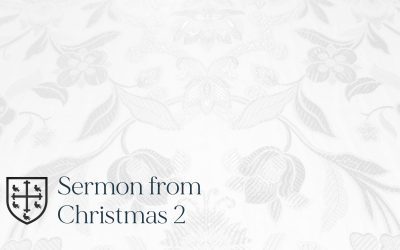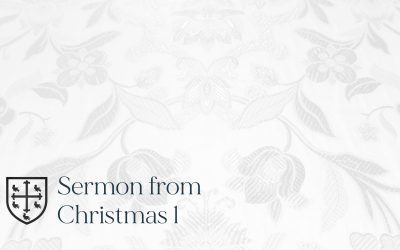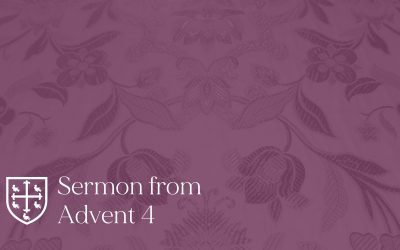Proper 20 Year B 9/22/2024
Jeremiah 11:18-20; Psalm 54; James 3:13-4:8a; Mark 9:30-37
Rev. Mark A. Lafler
Christianity and prayer go together like fish and water.
The two should never be separated.
Fish without water become weak and die.
Christians without prayer become weak in faith and begin to crumble.
Prayer…
Communication with God…
Relational conversation with Jesus…
Is essential between God and his people.
It is not (really) an option to pray or not to pray for a faithful Christian.
It’s what we do.
In our Anglican tradition, prayer is what shapes our day with morning and evening prayer…
It’s what defines and expresses our theology in the Book of Common Prayer (note the name = Book of Common Prayer).
If you want to know what we believe in this church…
Listen carefully to how and when we pray.
That is what liturgy guides us to do.
Prayer is what the Holy Spirit leads us to do.
Prayer is what we as the people of God are called to do.
Today in our readings we read from the song book of the Old Testament.
The Psalms.
The book Jesus loved to quote the most…
More than any other book of the Bible.
Psalm 54 is a prayer…
A prayer of David.
The psalm is a cry for help…
As we can see from the opening verse:
Save me, O God, by your Name; in your might, defend my cause.
It most likely dates to the time in David’s life when he was fleeing from King Saul, who saw him as a traitor and a usurper.
David was hiding out (according to 1 Samuel 23) and the Ziphites whom he was with went and told Saul that “David is hiding among us.”
And Saul was coming to take David’s life.
It’s a dire time when the monarch of the land wants your death.
And so, David writes this prayerful psalm.
In fact, it fits other similar psalms of prayer in its structure…
It has a lament in verse 3:
For the arrogant have risen up against me,
and the ruthless have sought my life,
those who have no regard for God.
It has a confession of trust in verse 4:
Behold, God is my helper;
it is the Lord who sustains my life.
It has a petition in verse 5:
Render evil to those who spy on me;
in your faithfulness, destroy them.
And it’s this petition that sometimes makes us a little uneasy.
The prayer is for God to destroy them.
Other translations don’t necessarily lighten it.
The Message paraphrase puts it this way:
Evil is looping back on my enemies. Don’t let up! Finish them off!
These are imprecations… spoken curses.
They are found multiple times in the Psalms.
But what do we do with them?
Are we supposed to pray that God will destroy our enemies as well?
Didn’t Jesus say to love our enemies and turn our cheek?
Should they just be removed from the Bible, so we feel better about it?
I think that would be a mistake to make.
And I commend the Revised Common Lectionary for keeping this in the Psalm for use in our worship.
Scholar Tremper Longman III writes about these difficult curses in the Psalms.
He says:
The Psalms mirror every human emotion and help us articulate them in prayer to God.
God invites our honest prayers.
When we are deeply harmed and our anger boils,
it would be both fruitless and dangerous to suppress those emotions rather than turning them over to God.
And that is the important point:
(he says)
the imprecations are not just expressions of anger;
they allow us to turn our anger over to God for him to act as he sees fit.
These prayers do not ask God for the resources and opportunity to take vengeance on our enemies;
they ask God to do so and acknowledge his freedom to act or not act as he sees fit. [1]
Two things here.
First, God invites us to pray to him with the full set of our emotions.
He knows how we really feel…
There is no need to hide it.
So, tell him, honestly, express those emotions to God.
It’s okay.
He wants us to.
And secondly, give those emotions to God.
It’s not on us to take vengeance…
we pray for vindication within God’s justice.
In our psalm (psalm 54) David is praying that the one’s doing evil will fall into their own traps…
That they will fall into their own evil that they have set up.
If it be the Lord’s will to do so.
David expresses his emotional desire on this and then leaves the results with God.
And then he finishes the psalm with a desire to praise God.
He writes:
I will offer you a freewill sacrifice
and praise your Name, O Lord, for it is good.
For you have rescued me from every trouble,
and my eye has seen the ruin of my foes.
David gives a non-compulsory gift to God in thanksgiving and expresses confidence in God’s faithfulness.
The whole Psalm is a cry…
A prayer for vindication…
At a time when David was at his lowest…
And the world was against him.
It is a prayer that we can pray too.
When we are under attack by the people in this world…
By the powers of this world and of the ruler of the kingdom of the air…
When we have been treated unjustly…
When our faithfulness to God and His Church is seen as weak and immoral.
Pray for vindication just as David prayed.
God is our protector and the one who vindicates us from false accusations.
And as the psalm calls for vindication…
We are reminded of our Lord and Savior…
Who like David, was the object of scorn and false accusations…
They plotted against Jesus to harm him…
And eventually they found someone to betray him…
Arrested him…
Tortured him…
And put Jesus to death on a cross.
Christ Jesus vindication came when God raised him from the dead…[2]
St. Paul writes (1 Timothy 3.16):
Beyond all question, the mystery from which true godliness springs is great:
[Jesus] appeared in the flesh,
was vindicated by the Spirit,
was seen by angels,
was preached among the nations,
was believed on in the world,
was taken up in glory.
Jesus rose victoriously…
Vindicated from all the scorn and false accusations.
And because of this…
Christ has made the way for us to be reconciled to God.
Through Jesus we can by grace be forgiven of our sins…
And by faith walk in the way of our Lord.
The lesson from Psalm 54 is to pray.
To be people of prayer no matter what the circumstance…
The situation…
Or the hardship.
We are called to be people of prayer.
In 1982, pastor Christian Fuhrer began Monday prayer meetings at Leipzig’s St. Nicholas Church.
For years, a handful gathered to ask God for peace amid global violence and the oppressive East German regime.
Though communist authorities watched churches closely,
they were unconcerned until attendance swelled and spilled over to mass meetings outside the church gates.
On October 9, 1989, seventy thousand demonstrators met and peacefully protested.
Six thousand East German police stood ready to respond to any provocation.
The crowd remained peaceful, however, and historians consider this day a watershed moment.
A month later, the Berlin Wall fell.
The massive transformation all started with a…
prayer meeting.
Prayer is powerful…
We come before God…
Honest with our emotions…
Hopeful in our vindication…
Trusting in the faithfulness of God.
As scholar and priest Winn Collier writes:
As we turn to God and begin relying on His wisdom and strength,
things often begin to shift and reshape….
We discover the God who alone is capable of profoundly transforming even our most dire predicaments and answering our most vexing questions. [3]
Let’s continue to be people of prayer.
We have many things to pray for in our world…
In our nation…
And in our own lives.
In our families.
In our church.
May we not let the narrative of this world shape our habits…
But may our habits of faithful prayer shape the narratives of this world.
Amen.
[1] Tremper Longman III, Psalms, TOTC (Downers Grove: IVP, 2014), 52.
[2] Ibid, 227.
[3] Winn Collier, Our Daily Bread, July 16, 2023.




